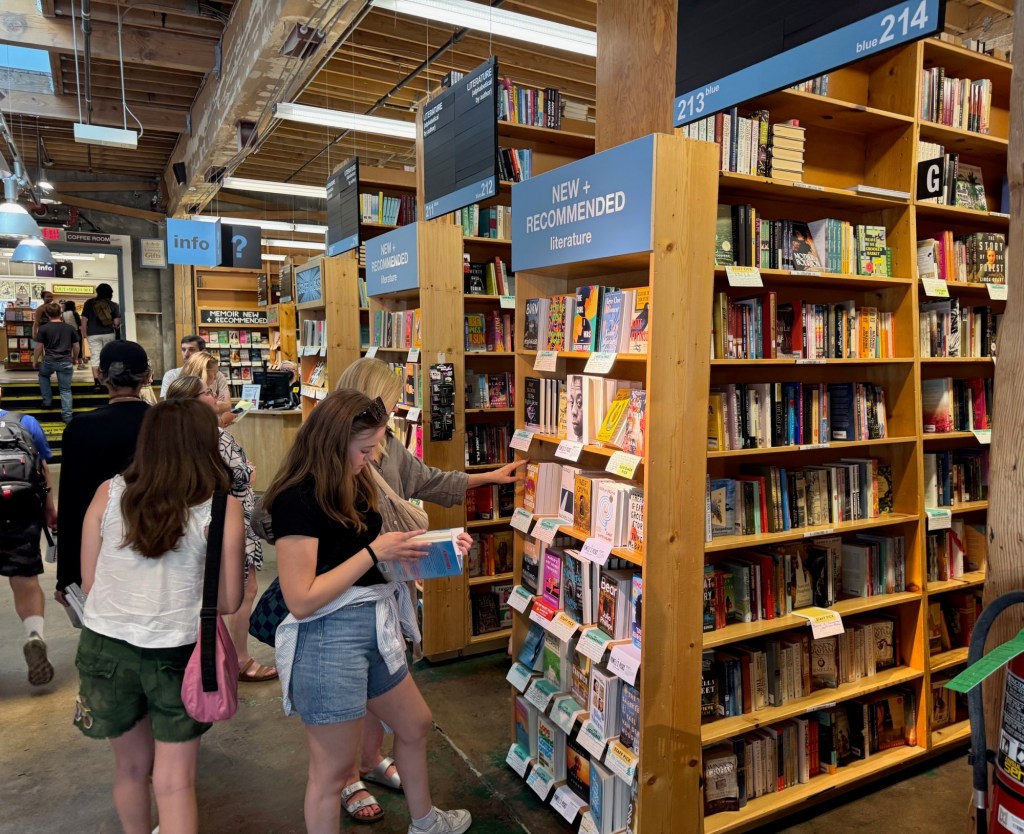
I went time traveling recently, back 100 years to the Jazz Age, a time of bootleg booze, the Charleston, a new mass media called radio, and deep cynicism after the mindless slaughter of World War I and a global pandemic that killed 100 million or more. How did I pull off this stunt?
I read a book.
Specifically, F. Scott Fitzgerald’s “The Great Gatsby” published one hundred years ago, and first encountered by me in High School half a century ago. I grew up in Gatsby country, Great Neck, New York, which is where Fitzgerald lived when he wrote Gatsby. Fictionalized as “West Egg” my home town is also home to one of literature’s most famous enigmas, Jay Gatsby, dreamer, rogue or both? I’m happy to report, Jay has aged well.
Revisiting Fitzgerald led me to Hemmingway’s “A Farewell to Arms,” a book I was supposed to read in high school but didn’t. Then I dusted off “For Whom the Bell Tolls,” a newcomer from 1940. Now I’m half-way through Edna Ferber’s “Show Boat” which turns 100 next year. Edna Ferber was once a household name, her books selling in the millions, spawning Broadway plays and hit movies. In 1924, she earned a Pulitzer Prize. In 2025, she is barely remembered. Still, Ferber won me over with a single sentence in “Show Boat.” Describing a henpecked husband liberated by the passing of his shrewish wife, she wrote: “He lived one free, blissful year and died of his own cooking.”
Fame has an expiration date. Things change. Technology moves on. The culture follows.
For 500-years, from “Don Quixote” until the internet, novelists dominated as mass-entertainment and occasionally important social critics. Upon meeting Harriet Beacher Stowe, author of “Uncle Tom’s Cabin,” Abraham Lincoln said, “So you are the little woman who wrote the book that started this great war.” From beach books to profundity, long-form fiction opened minds and shrank the world. But in the digital age it’s the novel itself that’s shrinking, shedding audience to streaming services, social media, on-line gaming, podcasts, porn, and video games. This is especially true of male readers.
Once the target audience for novelists, boys and young men are much more likely to spend time gaming than plowing through 400 pages of anything. We pay a price for this. The eye is a muscle. If it’s not exercised, left to right, top to bottom, atrophy sets in. Long-form reading then becomes as hard as pushups for a couch potato. The publishing industry understands this.
The book industry today (with notable exceptions like James Patterson and Stephen King) is dominated by female authors, agents, and editors. Influencers like Oprah, Reese Witherspoon and BookTok have smashed the glass ceiling for female writers. This represents a big change from the mid-20th century manosphere of Mickey Spillane, Philip Roth, John Updike and Saul Bellow, when the literary universe was dominated by male writers, publishers, editors and especially readers.
Men still read, of course. Last year over 700 million books were purchased in the United States including nearly a dozen copies of my novel! But what men read has changed dramatically.
Graphic novels are in. The classics are out. Barnes & Noble now devotes an entire section to manga books, serialized Japanese comics, many with no words at all. Does that count as “reading?” Fantasy and sci-fi are huge with the post-Harry Potter generation. (And thank you J.K. Rowling for introducing the joy of reading to millions of young people.) If a book has swords and dragons on the cover, chances are boys will be interested. Jane Austin? Not so much. In the first six months of this year, almost 350 million books have been purchased, not all of them about Donald Trump, although that number does include 200,000 adult coloring books.
The one-on-one conversation between author and reader transcends borders and time. Novels are a sanctuary for those seeking refuge from the relentless immediacy of modern life. But it’s getting harder every day. On September 1st, the Associated Press will cease publishing book reviews. They claim this is due to “declining reader interest.” Readers not interested in writers? That’s like being a football fan but having no interest in quarterbacks. A.I. can replace Cliff Notes, but not Fitzgerald and Ferber.
Only the collapse of the grid will bring back the glory days of the printed page and I like air conditioning too much to wish that would happen. But if books are to survive, we have to make time to read them. It’s not hard. Scroll one hour less a week. Skip season 8 of that BritBox mystery you fall asleep watching. And it’s the patriotic thing to do. Our shrinking attention span has left us vulnerable to demagogues and misinformation from every direction. Real knowledge requires more than 280 characters.
Here’s a novel idea: this Labor Day, how about reading a book?
Doug McIntyre’s column appears Sundays. His novel, “Frank’s Shadow” is available on Amazon. Reach him at: Doug@DougMcIntyre.com.



